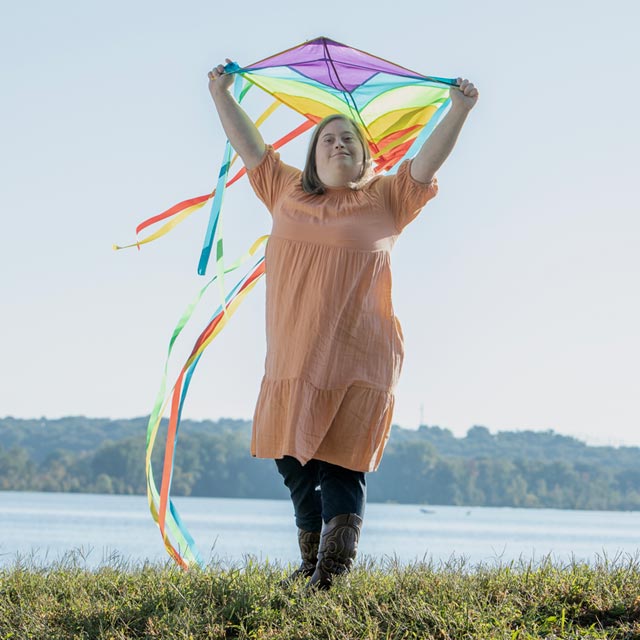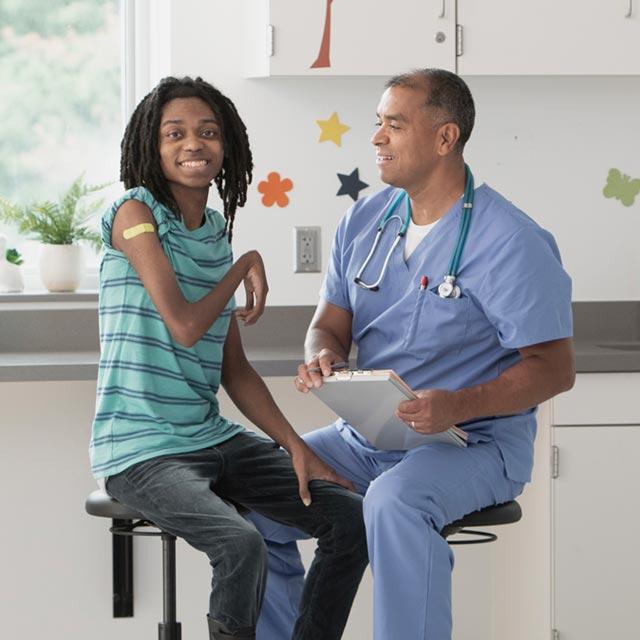
Vaccines work well, but some children who are vaccinated still get sick. Getting vaccinated helps protects children from both mild and serious illnesses that could lead to hospital care or even death.source: 1
There are a number of reasons why a child might still get sick after being vaccinated:
- The child was already sick. Vaccines can take several weeks to work with the body.source: 2 That means it is possible for your child to already be sick but have no symptoms when they got vaccinated, and the vaccine didn’t have enough time to protect them.
- The vaccine didn’t produce a good immune response. Vaccines work well, but they are not perfect. Sometimes, a vaccine doesn’t work well with the body. There are several reasons for this. Children with mild or moderate illness can still get vaccinated, but if a child who is very sick is vaccinated, sometimes their body is too focused on the sickness to work with the vaccine.source: 3
- Vaccine side effects were confused with an illness. This is the most common reason parents think a child got sick after the vaccine. Side effects are not sickness. Side effects after vaccination are common and expected. They are usually mild, last a couple of days, and do not harm the child.source: 4,source: 5,source: 6 Getting sick with a disease is very different—it can be serious, last a week or more, and have permanent consequences, ranging from deafness to death.source: 7
Key Evidence
- Most side effects are mild. Your child might be sore on the part of the body where they got the vaccine, or they might have a low fever or be a little fussy.source: 8 Serious allergic reactions are rare: For every 1 million vaccines administered in the United States, generally only one to two doses result in a severe allergic reaction.source: 6,source: 9
- Disease symptoms can be very serious. Many vaccine-preventable diseases have the potential to cause long-term health problems, hospitalization, and even death. Chickenpox, for example, can cause Reye’s syndrome (swelling of the liver and brain).source: 10,source: 11 In 2023, 90% of pediatric flu deaths were among unvaccinated children.source: 12
- Your child may get sick from the disease, even after they are vaccinated. But being vaccinated helps protect them from serious illness. Vaccines are very good at preventing illness but they are not a 100% guarantee that your child will not get sick.source: 13 If your child still gets an illness after vaccination, then the illness is more likely to be mild. For instance, it is possible to get COVID-19 after vaccination. But people who are up to date with their vaccine and get COVID-19 are less likely to need hospital care or die from the disease compared with people who have not been vaccinated or are not up to date with their vaccines.source: 14

A Deeper Dive: Side Effects vs. Symptoms
Your child’s body and the vaccine work together as a team to produce the immune response. It’s a lot like your child’s immune system is practicing to get ready for the big game. As part of these practice matches, your child may have side effects like a fever or soreness where they got the vaccine. Not everyone will get side effects. But they are normal and common. Side effects can be a sign that the immune system is working with the vaccine to create protection against disease. They are temporary and should go away in a day or two.source: 4
Symptoms are different from side effects. Symptoms happen when that team in your child’s body didn’t have enough practice rounds, so it wasn’t prepared for the big game. When that happens, your child can get sick. Symptoms from a vaccine-preventable disease can range from mild to very serious.source: 2
You can compare the difference between routine childhood vaccine side effects and symptoms of each vaccine-preventable disease on each page in this section.
More information
- Official Journal of the American Academy of Family Physicians: Vaccine Adverse Events: Separating Myth from Reality
- McGill University: I Felt Sick After Getting a Vaccine. Why?
- TED-Ed: How often should you get a flu shot? – Melvin Sanicas
Still have questions? Talk to your child's doctor, nurse, or pharmacist.
Sources
- CDC: Explaining How Vaccines Work
- CDC: Reasons to Vaccinate
- CDC: Vaccines When Your Child is Sick
- CDC: Possible Side Effects from Vaccines
- History of Vaccines: Vaccine Side Effects and Adverse Events
- HHS: Vaccine Side Effects
- CDC: Clinical Overview of Mumps
- CDC: About Vaccines for your Children
- Journal of Allergy and Clinical Immunology: Risk of anaphylaxis after vaccination in children and adults
- CDC: Pink Book: Varicella
- NINDS: Reye’s Syndrome
- CDC: Pediatric Flu Deaths Top 100 this Season; Most Unvaccinated
- FDA: Vaccines for Children - A Guide for Parents and Caregivers
- CDC: COVID-19: Benefits of Getting Vaccinated
Disclaimer Policy: Links with this icon () mean that you are leaving the HHS website.
Disclaimer Policy: Links with this icon () mean that you are leaving the HHS website.
- The Department of Health and Human Services (HHS) cannot guarantee the accuracy of a non-federal website.
- Linking to a non-federal website does not mean that HHS or its employees endorse the sponsors, information, or products presented on the website. HHS links outside of itself to provide you with further information.
- You will be bound by the destination website's privacy policy and/or terms of service when you follow the link.
- HHS is not responsible for Section 508 compliance (accessibility) on private websites.
- For more information on HHS's web notification policies, see Website Disclaimers.
